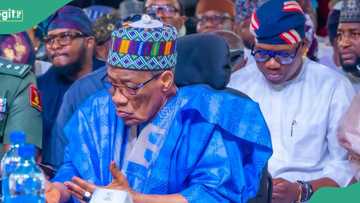How Nigeria Appeared to Have Two Presidents Before Abacha and Babangida Fell Apart
- The late military historian Nowa Omoigui documented the power struggle between Ibrahim Babangida and Sani Abacha following the foiled Gideon Orkar coup of 1990
- Babangida's newly released autobiography, A Journey in Service, blames "forces by Abacha" for the annulment of the June 12 presidential election in 1993
- The rivalry between the two generals created the impression of two separate governments before they eventually fell apart
Don't miss out! Join Legit.ng's Sports News channel on WhatsApp now!
The late Nigerian military historian and cardiologist, Nowa Omoigui, documented the subtle power struggle between Ibrahim Babangida and Sani Abacha arising from the foiled Gideon Orkar coup of 1990.
Babangida served as military president from 1985 to 1993 before stepping aside during the June 12 crisis, while Abacha took power in 1993 and ruled until his sudden death in June 1998.
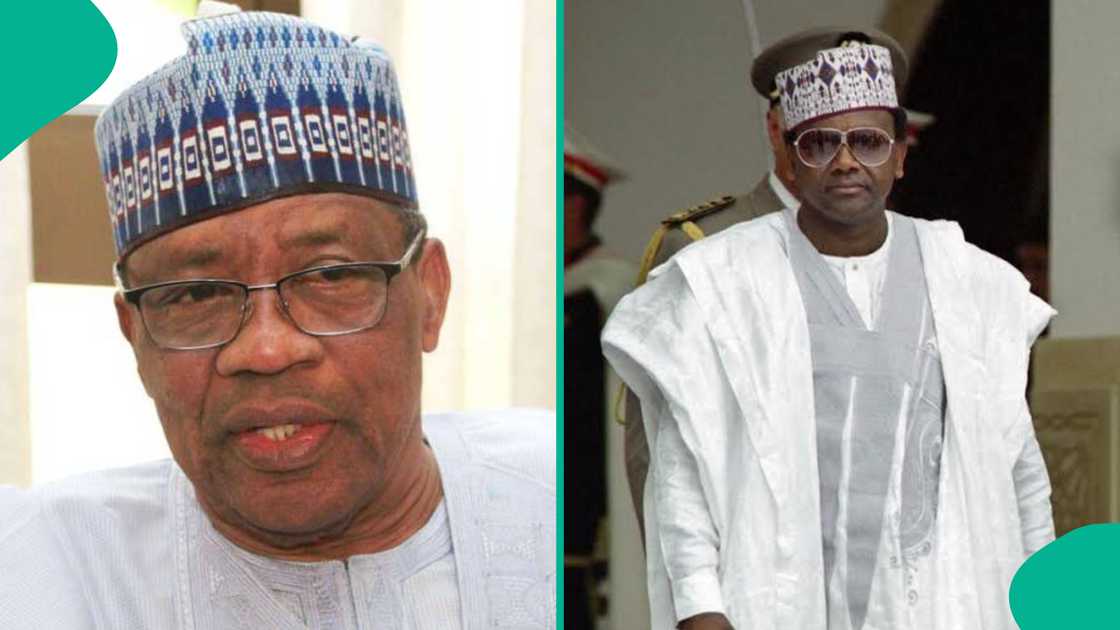
Source: Getty Images
In his newly released autobiography, A Journey in Service, Babangida blamed "forces by Abacha" for the annulment of the June 12 presidential election in 1993.
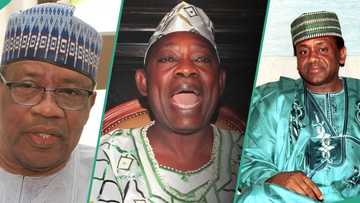
Read also
Political analyst reacts as Abacha’s children attack IBB over June 12 annulment, “Stop defending your father”
Early signs of Abacha's ambitions
Omoigui, in a series of articles written in 1998, noted that there were signs as far back as 1985, when Babangida overthrew Muhammadu Buhari, that Abacha had long-term ambitions.
Abacha announced the overthrow of civilian president Shehu Shagari on the last day of 1983 and later announced Babangida's appointment as president on August 27, 1985, when Buhari was deposed. The coup speech was read by Joshua Dogonyaro, then a brigadier.
However, the Orkar coup of April 1990 rattled Babangida, leading to the death of Lt-Colonel UK Bello, his ADC. Abacha rallied the troops to foil the coup and began to gain loyalty from top military officers.
Parallel governments
In a reproduced article titled ‘The Palace Coup of November 17, 1993’ by The Cable, Omoigui noted how Abacha and Babangida seemed to be running two governments.
"General Abacha’s role in saving the Babangida regime in 1990 bought him huge stock, not only with Babangida himself but also with a significant number of other ‘IBB Boys’. It marked the beginning of the rise of Sani Abacha and the beginnings of his own independent client network," Omoigui wrote.
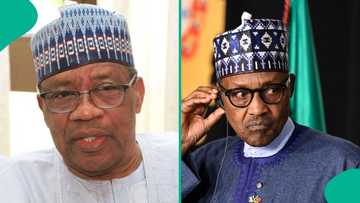
Read also
IBB mentions his main reason for overthrowing Buhari in 1985 even though he was his Chief of Staff
After a period of nervousness, Babangida resumed plans to replace Abacha as Chief of Army Staff. In September 1990, Babangida ceded his position as Minister of Defence to Abacha, who combined it with his role as Chairman, Joint Chiefs of Staff. Some observers believed an unwritten agreement allowed Abacha to control defence funds while Babangida managed the rest of the government.
Abacha remained in Lagos when Babangida moved to Abuja in 1991, creating the impression of two separate governments.
He wrote:
“General Abacha’s role in saving the Babangida regime in 1990 bought him huge stock, not only with Babangida himself but also with a significant number of other “IBB Boys”. It marked the beginning of the rise of Sani Abacha and the beginnings of his own independent client network, separate from the umbilical cord that tied him into the maternal Babangida bandwagon. His own independent network would later become known as “Abacha Boys”, based mainly, but not exclusively, around officers from the Kano area.
“After a lull during which Babangida was very nervous and lacked confidence, he later resumed the old plan to replace Abacha as Chief of Army Staff. In September 1990, after two batches of executions of “Orkar coup convicts” had been carried out, Babangida ceded his position as Minister of Defence to General Abacha who was to combine it with his position as Chairman, Joint Chiefs of Staff. Some observers feel that an unwritten part of this new arrangement was that Abacha would be left alone to do as he pleased with defence funds while Babangida ran the rest of the government. To crystallize the new “space” created for General Abacha as the “Defence Czar”, he stayed behind in Lagos when Babangida moved to the new capital of Abuja in 1991. It was as if the country had two governments.”
IBB mentions reason for overthrowing Buhari
Legit.ng earlier reported that former military head of state, Ibrahim Badamasi Babangida (IBB), has disclosed that the Muhammadu Buhari regime was overthrown due to dissatisfaction with its policies and leadership styles.
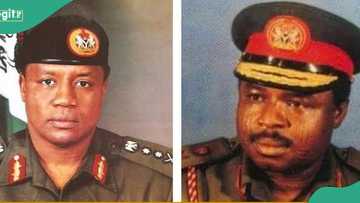
Read also
Falana hits IBB over killing of ex-president's best man, Mamman Vatsa, “The law Babangida used"
Babangida, who was Chief of Army Staff under Buhari, revealed this in his autobiography, A Journey In Service, launched in Abuja on February 20.
PAY ATTENTION: Сheck out news that is picked exactly for YOU ➡️ find the “Recommended for you” block on the home page and enjoy!
Source: Legit.ng


